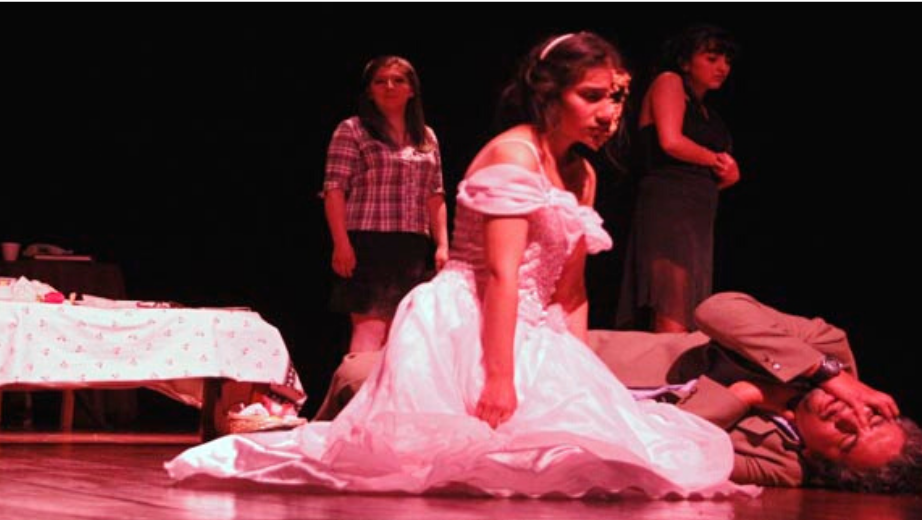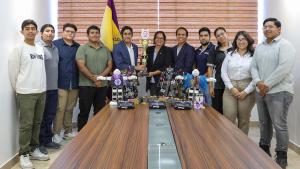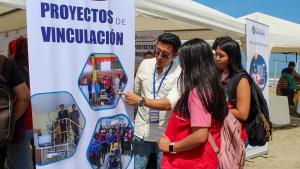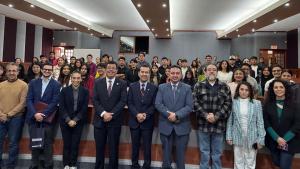Cultura as a creative industry and a business model
Cultura as a creative industry and a business model

The university's branch campus in Quito held the webinar titled "Academic dance, theater and music. Creative industries or entrepreneurships?" Participants learned about the differences between creative industries and entrepreneurship, the contribution of research to performing arts, cultural projects, value chain and challenges during the pandemic.
The speakers were Evelyn Gallegos, who holds a master's degree in cultural management, music, theater and dance; Juan Carlos Culquicondor, bachelor's degree in performing arts and director of the "Pumapungo" group in the university's campus in Cuenca; Juan Pablo Acosta, actor, professional director and the director of the theater group in the university's campus in Quito; and Ruth Diaz, master's degree in musical arts and the director of the choir group in the university's campus in Guayaquil. The moderator of the talk was Blas Garzon, director of the cultural management master's degree program at UPS.
Regarding the differences between creative industry and entrepreneurship, cultural managers agreed that the industry has to do with a process that goes from conception to product distribution, while entrepreneurship is a business model based on a need. "The cultural industry is a chain in which ideas are conceived and distributed while entrepreneurship points to a business model," stated Acosta.
Regarding the value chain of theater, dance and academic music, they said these arts establish differences compared to other projects. "We need a study of the sectors to determine the methodology, public training strategies, use of new media, dynamics of internal visibility and market interest," said Culquicóndor.
Díaz considered that research is important and must be done in the country because there is not enough information, data, statistics to understand cultural processes. Acosta considered that work should adapt to new scenarios, use other languages, codes and supports, in addition to thinking digitally.
Jorge Adrián Méndez, director of the theater group in Cuenca, talked about public policies and culture in the country in order to strengthen the work of cultural management.
He spoke about the history of Ecuador's cultural policies and recalled that cultural life was explicit and was not subject to an institution or administration, nor was it promoted because it was something common and part of social interaction. "In the eighteenth century, there began to be policies for individual and collective efforts and in the nineteenth century the Casa de la Cultura Ecuatoriana Benjamín Carrión was created, which started with what we know as cultural management," he said.





Follow us
Follow us